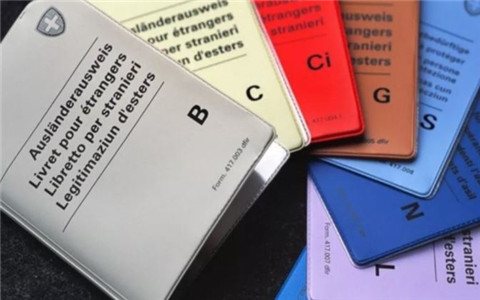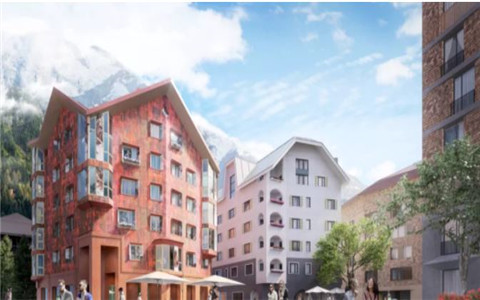
发布时间:2021-09-01
瑞士常见居留证种类
能够在风景如画的瑞士短暂停留或居住,需要一些文件来证明居留的合法性。而在选择申请瑞士居留证种类的过程中,最重要的是要仔细斟酌自己最适合哪种居留情况.
在此我们将为您展示几种为外国人,特别是非欧盟国家的外国人提供的主要居留证。不同的人移居瑞士有不同的目的,这也就是为什么需要提供不同种类的签证与居留证的原因。例如,您可能正在考虑因学习或工作的原因移居瑞士,在这种情况下,学生签和工作签是两种截然不同的签证,同时也需要不同的审批流程。

以下是瑞士为来自非欧盟国家的外国人提供的几个比较常见的居留证种类:
01
短期居留许可(L类)
什么是L证:短期居民是指因特定目的在瑞士短暂居住的外国人,无论是否有全职工作,居住时间通常不满一年。欧洲国民在出示3个月至1年的就业合同后有权获得这一许可。在一年中持续时间不满三个月的劳务关系,则不符合这一许可的要求,而是需要进行“登记注册”,即您只需要声明已经到达所在的瑞士城市。这一居留证有可能延期至12个月。所有寻求就业机会的欧盟/欧洲自由贸易区国民,都有权获得欧盟/欧洲自由贸易区的L类签证许可,但这并不能保证此类国民享有社保福利。
如何获得:若要申请此类许可,您必须签署劳务合同,或一份雇佣声明(承诺雇佣),而且在瑞士的停留时间不得低于4个月。

02
长期居留许可(B类)
什么是B证:这是一种为进入瑞士长期居住的外国人,无论其是否有工作薪酬,所颁发的居留证。对于第三国国民来说,第一次的居留许可期限通常不超过一年。申请B证有几种主要途径,包括通过有偿工作的方式,缴纳打包税的方式,或者通过留学方式获得。申请B证有几种主要途径,包括通过有偿工作的方式,缴纳打包税的方式,或者通过留学方式获得。
基于有偿工作原因的居留许可,只能在每年联邦确定的发放额度内,根据《外国人法》第20条的规定来首次发放。通常情况下,只要没有任何会造成许可被拒绝的理由(如犯罪记录、福利依赖、劳动力市场),这些许可就可以逐年续期。只有在特定情况下,才有权延长年度居留证。在实践中,年度居留证通常可延长至有权领取失业救济金的截止时间。
通过缴纳打包税获得的居留许可,其发放同样也受限于联邦政府每年的额度控制。这类居留许可主要由各州政府审批、联邦政府复核,并根据申请人的资产和收入情况,裁定一个固定税基,通常一次可议定5年。此类居留许可也是每年续期。此类居留许可的持有人,不可在瑞士境内有工资收入。
以留学方式获取的居留许可,通常由留学生就读的学校在学生完成注册登记后,负责帮助学生办理。此类居留许可每年续期,在瑞士学习结束之后自动注销。
如何获得:拥有一份至少12个月的雇佣合同或承诺声明(雇佣承诺),或者某一州政府正式书面裁定的税基,或者获得瑞士学校的录取通知书。

03
永久居留许可(C类)
什么是C证:拥有长期居住许可(B证)的外国人在瑞士居住5至10年后可申请定居许可(注:以留学方式获取的B证不可转成C证)。居住权是无限期的,不受任何条件限制。联邦移民局负责确定各州主管部门发放定居许可的日期。第三国国民原则上可以在正常和不间断地居住十年后获得定居许可。美国公民须遵守特殊规定。拥有定居许可的外国人不再受FTA(自由贸易协定)的约束;他们可以自由选择雇主,并且不再从源头上征税。
如何获得:一般来说您需要在瑞士居住最少5年(无论是否有雇佣合同),但第三国国民居住时长,需延长为10年。

04
养老签证
什么是养老签证:如果养老金领取者年满55岁,且个人与瑞士拥有无法割舍的联系,并且有足够的经济来源,就可以获得瑞士居留证。判定养老金领取者是有足够的经济能力,要依据他实际上从未求助过当地的社会援助。也就是说,养老金领取者必须有足够的资金来源能超过其有权获得补充福利的金额。这个数额包括他的房租、医疗保险费和每年11,760瑞士法郎的其他费用。此外,希望在瑞士定居的人必须声明他或她已从职业生活中退休,并承诺今后不在瑞士或国外从事任何有偿活动,但管理自己的资产除外。养老金领取者的配偶和子女可以按照家庭团聚的通常条件进入瑞士。
如何获得:入境申请必须提交给瑞士驻该国民居住国的代表处,并向主管当局提供通信地址。当事人必须年满55岁,需要个人与瑞士有无法割舍的关系,当然还要有足够的经济能力,超过有权享受补充福利的金额(房租、保险费和其他费用)。

Original English Text
Different Residency permits
Several documents can prove the right to stay or to reside in the beautiful landscapes of Switzerland. The most important thing is to understand carefully which one corresponds to your own situation the best.
Here we will be presenting the main residency permits that are offered to foreigners specially coming from non-European countries. There are plenty of reasons for moving into a country such as Switzerland, this is the reason for there being various types of visas and residency permits. You may consider moving to Switzerland for studies or work for example, in this case the study and work visa will be two completely different matters and authorizations.
Different Permits (For non-European foreigners):
L Permit (Less than 1 year)
What it is: Short-term residents are foreigners who stay temporarily in Switzerland for a specific purpose, generally for less than one year, whether they are fully employed. European nationals are entitled to this permit upon presentation of an employment contract of between three months and one year. Employment relationships lasting less than three months in a calendar year are not subject to this authorization, but to what is called a "registration procedure" where you are simply declaring your arrival in the respective city. This permit may be extended up to a total of twelve months. All EU/EFTA nationals seeking employment are entitled to an EU/EFTA L permit, which does not entitle them to social security benefits.
Requirements: You must have an employment contract or a declaration of employment (a promise of employment). The stay must be of at least 4 months.
B Permit (Long stays)
What it is: A residence permit for foreigners that have entered Switzerland to reside on a permanent basis, whether for gainful employment or not. For third-country nationals, the residence permit is usually not longer than one year the first time. There are several means to obtain a B permit: through a remunerated work, by paying lump-sum tax, or by obtaining a student’s visa.
Initial permits for remunerated work can only be granted within the maximum numbers fixed each year and in accordance with the provisions of Article 20 of the Aliens Act. Normally, these permits are renewed from year to year, provided that there are no reasons (e.g., crimes, welfare dependency, labor market) to incite the contrary. Only in certain cases there is a right to extend the annual residence permit. In practice, the annual residence permit is usually extended for as long as the person is entitled to unemployment benefits.
Permits by paying lump-sum tax is also limited by the annual quota by the Federal government. It is authorized by the Cantonal governments and confirmed by the Federal government, with a deemed tax base according to the assets and renvenue of the applicants. The tax base is normally deemed for every 5 years. This type of permit is also renewed annually. It should be noted that holders of permits by paying lump-sum tax should not have gainful employment in Switzerland.
For permits by obtaining a student’s visa, normally it is applied with the help of the school/university in which the student has registered. This type of permits are renewed annually, and are cancelled automatically upon completion of their studies in Switzerland.
Requirements: Have an employment contract or a declaration of commitment (a promise of hire) for a period of at least 12 months, or an official written tax base deemed by one of the Cantonal governments, or an offer letter from a Swiss school/university.
C Permit (Permanent Resident)
What it is: Foreigners with a residence permit obtain a settlement permit after five to ten years of residence in Switzerland (Note: B permits by obtaining a student’s visa is not eligible to obtain a C permit). The right of residence is of indefinite duration and is not subject to any conditions. The Federal Office for Migration determines the date from which the competent cantonal authority may issue the settlement permit. Third-country nationals may, in principle, obtain a settlement permit after ten years of regular and uninterrupted residence. U.S. citizens are subject to special regulations. Foreigners with an establishment permit are no longer subject to the FTA (Free Trade Agreement); they are free to choose their employer and the tax is no longer levied at source.
How to get it: You need to have lived (with or without employment) in Switzerland for 5 years, unless you are from a third world country which would extend this mandatory residence time to 10 years. In order to obtain the C permit, language tests must also be passed.
Annuitant Visa
What it is:An annuitant may be admitted to Switzerland if the person concerned has reached the age of 55, has special personal ties to Switzerland and has sufficient financial means. For the pensioner to be accepted as having sufficient financial means, it must be practically impossible for him to ever have recourse to the local social assistance. This means that the pensioner must have sufficient resources to exceed the amount that entitles him to supplementary benefits. This amount includes the amount of his rent, the amount of health insurance premiums and CHF 11,760 per year for other expenses. In addition, the person wishing to settle in Switzerland must declare that he or she has retired from professional life and that he or she undertakes not to engage in any gainful activity in the future, either in Switzerland or abroad, except for the management of his or her own assets. The spouse and children of the pensioner may be admitted into Switzerland under the usual conditions of family reunification.
How to get it: The application for entry must be submitted to the Swiss representation in the national's country of residence and a correspondence address must be provided to the competent authorities. The person concerned must have reached the age of 55, needs special personal ties to Switzerland and of course, sufficient financial means to exceed the amount that entitles him to supplementary benefits (Rent, insurance premiums and other expenses)
Sources:
Info relatives to Swiss embassy in China and the services they can provide
https://www.swiss-visa.ch/ivis2/#/i210-select-country
Visa - entry to and residence in Switzerland (Federal)
https://www.eda.admin.ch/countries/china/en/home/visa/entry-ch.html
Staying - Working and Living in Switzerland (Cantonal)
https://www.sem.admin.ch/sem/fr/home/themen/aufenthalt.html
Visa - Requirements toward Chinese
https://www.sem.admin.ch/sem/en/home/publiservice/weisungen-kreisschreiben/visa/liste1_staatsangehoerigkeit/c.html
Switzerland - No Lucrative Activity
https://www.sem.admin.ch/dam/sem/fr/data/eu/fza/personenfreizuegigkeit/factsheets/fs-nichterwerbstaetige-f.pdf.download.pdf/fs-nichterwerbstaetige-f.pdf
Switzerland - Annuities
https://www.swissinfo.ch/fre/rentiers/29101284
Neuchâtel - General Annuities recouvrements info
https://www.ne.ch/autorites/DECS/SMIG/sejour-etablissement/Pages/Etats-tiers---Rentiers.aspx
Neuchâtel - Entry and Staying in Switzerland
https://www.ne.ch/autorites/DECS/SMIG/sejour-etablissement/Pages/entree-sejour-suisse.aspx
Neuchâtel - Family regrouping
https://www.ne.ch/autorites/DECS/SMIG/sejour-etablissement/Pages/Etats-tiers---Regroupement-familial.aspx
ALCP
https://www.fedlex.admin.ch/eli/cc/2002/243/fr
OASA
https://www.fedlex.admin.ch/eli/cc/2007/759/fr
UE-AELE - Rentiers
https://www.ne.ch/autorites/DECS/SMIG/sejour-etablissement/Pages/UE-AELE---Rentiers.aspx
本文转载自雷梭勒家族办公室,如有侵权,敬请告知删除。
Sooswiss为您提供
瑞士方向私人管家式的定制服务:
1)家族传承 2)财富管理 3)瑞士投资
4)居留计划 5)税务优化 6)家族治理
更多资讯请登录网站 www.sooswiss.com
